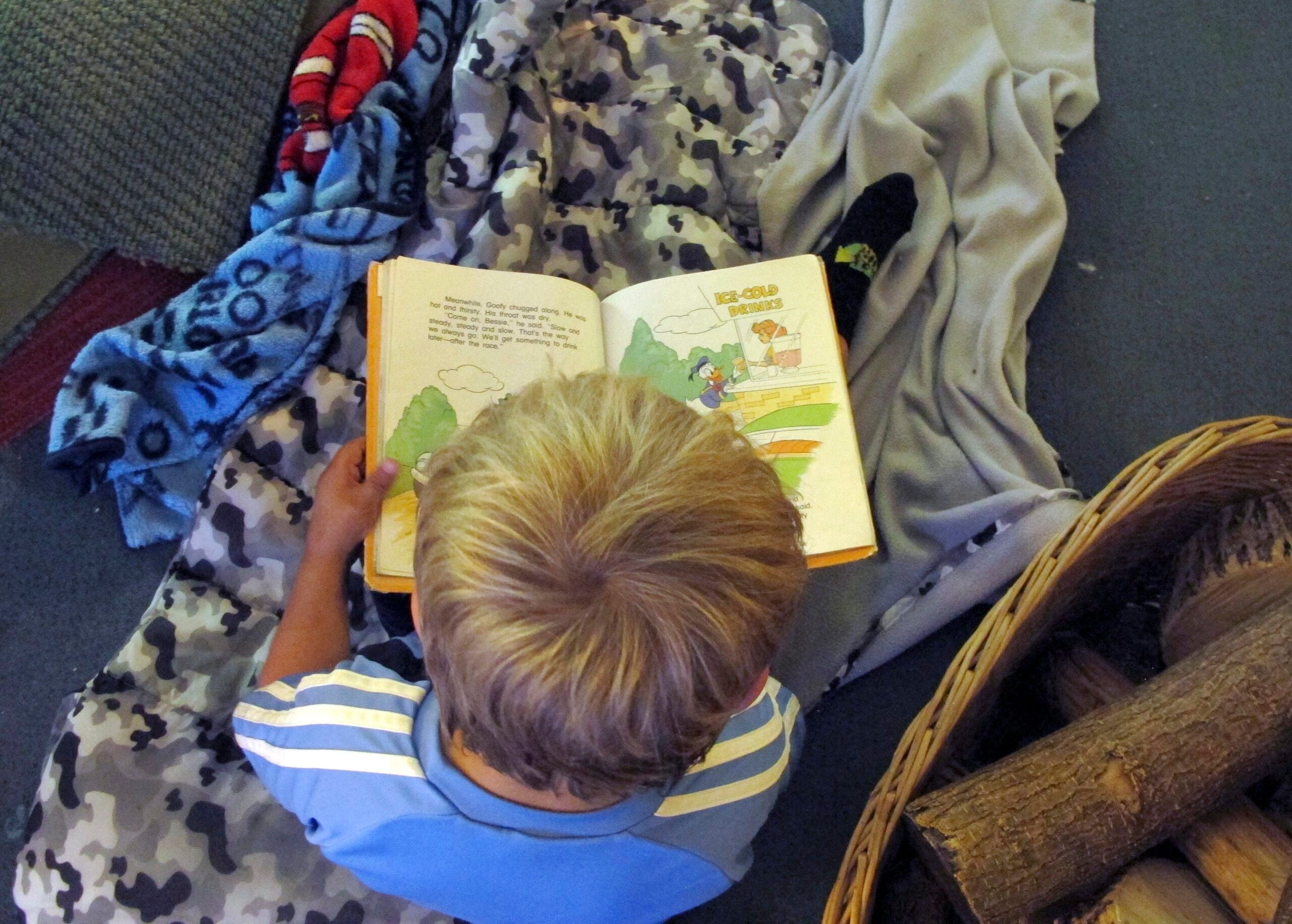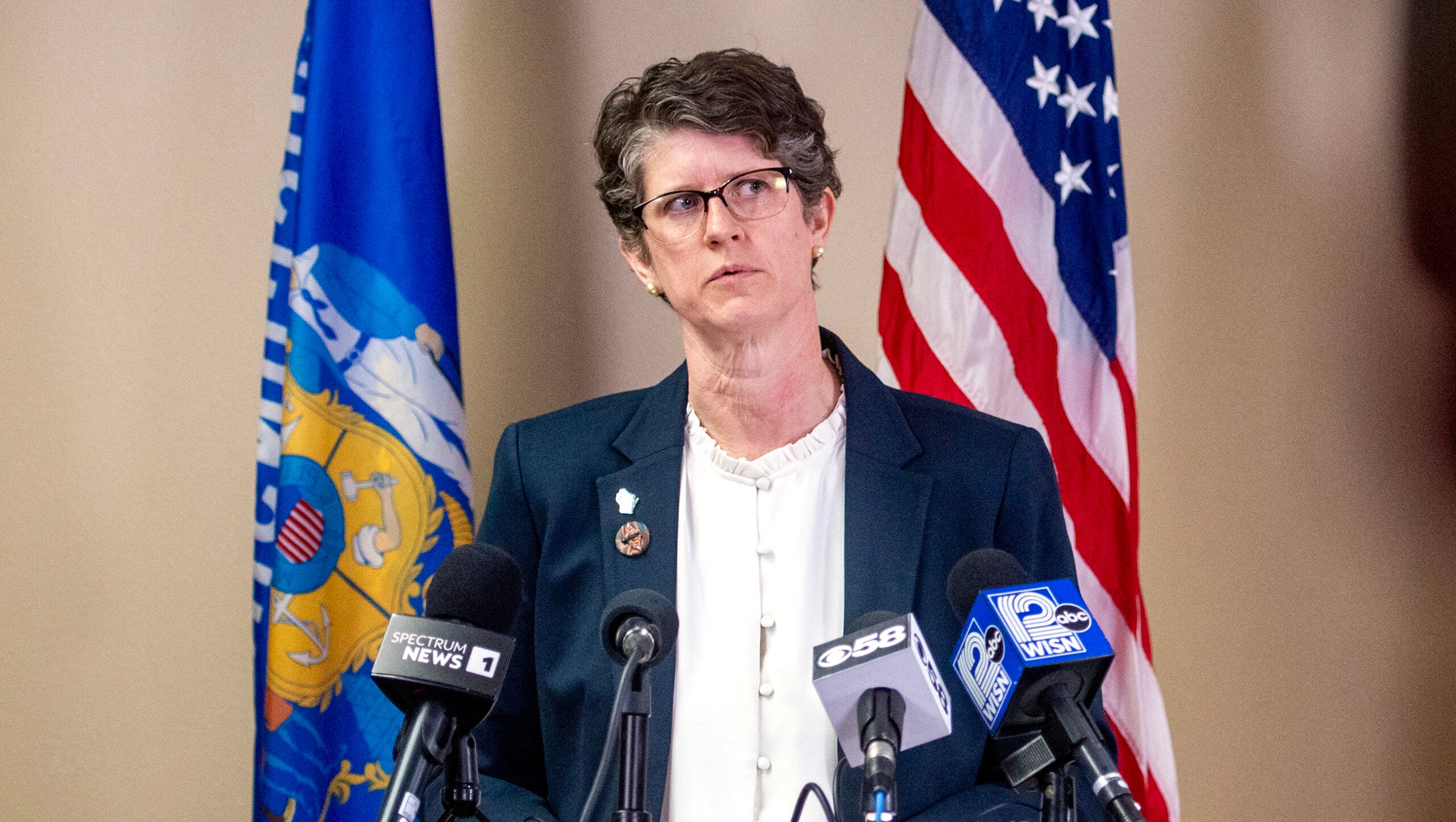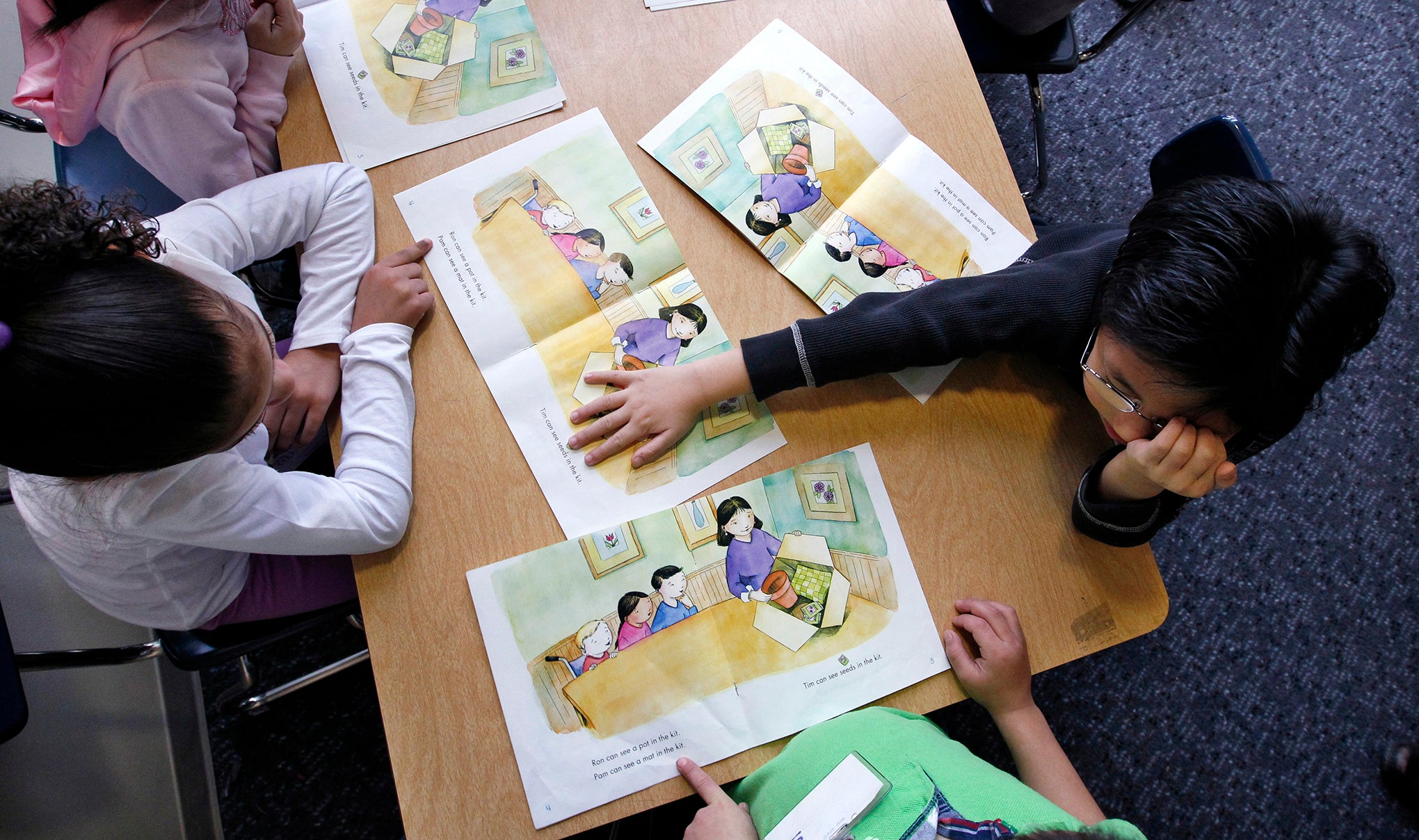Republicans on the Legislature’s budget committee have rejected the state Department of Public Instruction’s recommended reading curriculum list that Wisconsin’s public and private schools will begin using next fall.
The Joint Finance Committee instead went with a shorter list, chosen by an Early Literacy Curriculum Council, made up of six GOP appointees and three DPI designees.
Under the state’s reading education reform law, passed last summer, choosing new curricula is the first big step in changing how Wisconsin students are taught to read.
News with a little more humanity
WPR’s “Wisconsin Today” newsletter keeps you connected to the state you love without feeling overwhelmed. No paywall. No agenda. No corporate filter.
“I believe that if we want to see Act 20 succeed we need to embrace quality over quantity,” said Sen. Duey Stroebel, R-Cedarburg, referring to the formal title of the reading curriculum law. “And the recommendations made by (the council) represent a quality that we should be proud of.”
Schools don’t have to follow the recommended curriculum, but if they do, the state will pay for a portion of the cost. The $50 million reading law includes paying for reading coaches and financial aid for buying approved curriculum.
State Superintendent Jill Underly released a statement following the vote saying she remains hopeful school districts can access a “strong array of resources to help them implement the new law.”
“Act 20 is about doing what is best for kids through evidence-based teaching and learning, and I stand behind the strong list of high-quality instructional materials the Department of Public Instruction submitted for potential state support,” Underly said in a statement, “Today’s action to limit the curricula that will qualify for additional state funding is a missed opportunity, which will unfortunately limit the potential reach and impact of our bipartisan curricular changes for students across Wisconsin.”
Wisconsin has joined more than 30 states in switching to what is called “the science of reading,” a phonics-based approach where children are taught to sound out letters.
Most school districts in the state now use a balanced literacy approach called “three-cueing,” that will now be illegal in all public and private schools.
The change comes at a time when fewer than 40 percent of third graders were proficient in reading on the most recent Wisconsin Forward Exam. Wisconsin’s achievement gap between Black and white fourth grade students in reading has often been the worst in the nation.
DPI says council didn’t do its job
On Feb. 19, DPI submitted 11 recommended curricula to the Joint Finance Committee.
In a letter to committee members, the DPI raised a number of concerns about the Early Literacy Curriculum Council, including how well the group reviewed curricula.
The council was appointed in September by the DPI, Assembly Speaker Robin Vos, R-Rochester and Senate Majority Leader Devin LeMahieu, R-Oostburg.
The group recommended four curriculum choices:
- CKLA by Amplify
- EL by Open Up Resources
- Wit and Wisdom with Geodes and Really Great Reading
- Bookworms by Open Up Resources
Because of their concerns, the DPI conducted an independent review. They struck “Bookworms” from the list, and instead added eight additional choices.
DPI officials warned lawmakers that not choosing a broader list could lead to a lawsuit from a vendor not chosen.
Democrats on the Joint Finance Committee said that warning should be taken seriously.
“I think that it’s arrogant. I think it is pure foolishness that we are going to go against the better judgment of the Department of Public Instruction, especially considering they’re saying that this is a possibility,” said Sen. LaTonya Johnson, D-Milwaukee. “When they’ve already given us forewarning that this is a possibility.”
Stroebel called the possibility of a lawsuit a “far-fetched legal theory.”
“I’m not going to look to DPI as, my God, the only people in the world who can pick the correct curriculum,” Stroebel said. “And they really showed a lot of guts by picking almost everything out there. I mean, seriously, we want the best, that’s what we want for our kids the best.”
In a statement, Underly said the DPI list complies with the new state law and “mirror materials recommended by other states undergoing similar challenges.”
Wisconsin Public Radio, © Copyright 2026, Board of Regents of the University of Wisconsin System and Wisconsin Educational Communications Board.







